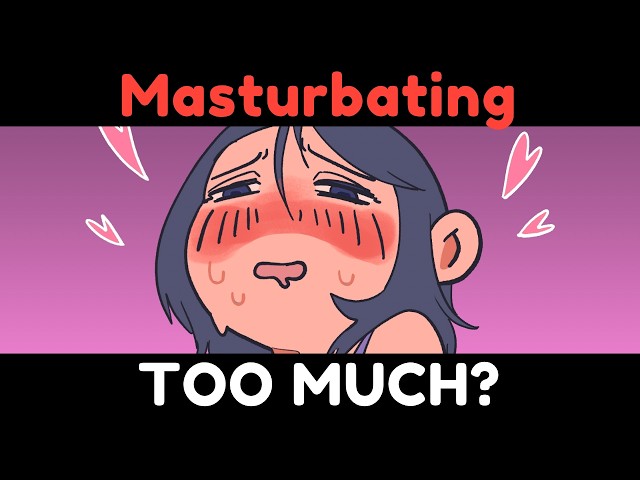Understanding Masturbation Habits: Is It Too Much? As we learn about our bodies, we often wonder what is normal and what isn’t, both physically and mentally. One common question is, “Am I masturbating too much?” This is a valid and worthwhile question. Everyone is different, but recognizing when your habits might be excessive is a good reason to pause and reflect. If you relate to any of the points below, know that there’s no need to feel ashamed. This topic is important enough to discuss with a qualified professional if you’re concerned. Let’s dive into understanding when masturbation might be excessive and how it can impact your life.
When Is It Too Much?
Several factors influence your sex drive, including sleep quality, exercise, and hormones. Hormones, in particular, can feel like they’re working against you, driving constant thoughts about sex. These chemicals significantly affect your emotions and behavior, and fighting them isn’t always an option. For teenagers, attempting to alter hormones with medication could stunt development, but masturbation itself is natural and not harmful. According to a study published in the Archives of Sexual Behavior, early masturbation experiences do not damage development or adjustment into adulthood.
You might instinctively know if you’re masturbating too much. Signs include:
- Engaging in it multiple times a day to the point of physical exhaustion.
- Planning your day around opportunities to masturbate, which disrupts your daily life.
If these patterns sound familiar, it may be time to evaluate your habits.
Impact on Baseline Happiness
During the COVID-19 pandemic, researchers found that sexual desire and arousal were not always the primary motivators for masturbation. Both men and women used it to relieve anxiety, depression, or boredom. However, relying on masturbation for emotional relief can lead to dependency, especially if feelings of boredom or anxiety persist afterward. Over time, this can shift your baseline happiness, where you feel distracted or frustrated until you masturbate. This is similar to other addictive behaviors, like needing a cigarette or other substances to start the day. Healthy habits can prepare you for the day, but you shouldn’t feel hollow or frustrated without them.
Changes in Your Relationship with Sex
Excessive masturbation can affect your relationships, particularly if you prefer it over intercourse with a partner. This might stem from poor sexual experiences or desensitization from frequent masturbation and pornography, which can condition you to seek instant gratification. This preference can have negative implications for future relationships, as sexual satisfaction is often a key component of relationship satisfaction. Inability to engage in intimacy with a partner can increase stress for both of you, potentially creating a cycle where stress triggers more masturbation.
Masturbation in relationships is common, especially when partners have different libidos or schedules. However, if masturbation consistently replaces sexual intimacy with your partner, it may indicate an issue.
Potential to Feel Worse
Masturbation can feel good, releasing endorphins and dopamine, which may temporarily alleviate negative emotions. However, this relief is fleeting. Relying on masturbation for emotional regulation can increase the urge to do it more often, potentially worsening your mental state. Many people feel guilty about masturbating due to religious beliefs, upbringing, or personal values. For chronic masturbators, this guilt can lead to severe depression or low self-esteem, creating a vicious cycle where masturbation is used to cope with those same feelings.
Like any compulsive habit, the enjoyment of masturbation may diminish over time, leaving you feeling unfulfilled.
Steps to Manage Excessive Habits
If you suspect your masturbation habits are excessive, consider these steps:
- Limit Triggers: Identify and reduce triggers, such as specific apps, movies, or shows that prompt the urge to masturbate.
- Find Distractions: Engage in hobbies or social activities to redirect your focus.
- Seek Professional Help: If your habit feels tied to deeper issues like depression or anxiety, a therapist can provide valuable guidance.
For younger individuals navigating puberty, intense hormonal urges may naturally subside over time. For older individuals, addressing chronic masturbation may involve tackling underlying emotional or psychological issues.
Final Thoughts
Admitting you might have a problem with excessive masturbation can be challenging, especially given its personal nature. However, recognizing the issue is a step toward positive change. If you’re struggling, consider sharing your experiences or seeking advice from others who have managed similar habits. Your insights could help someone else.







Leave a Comment